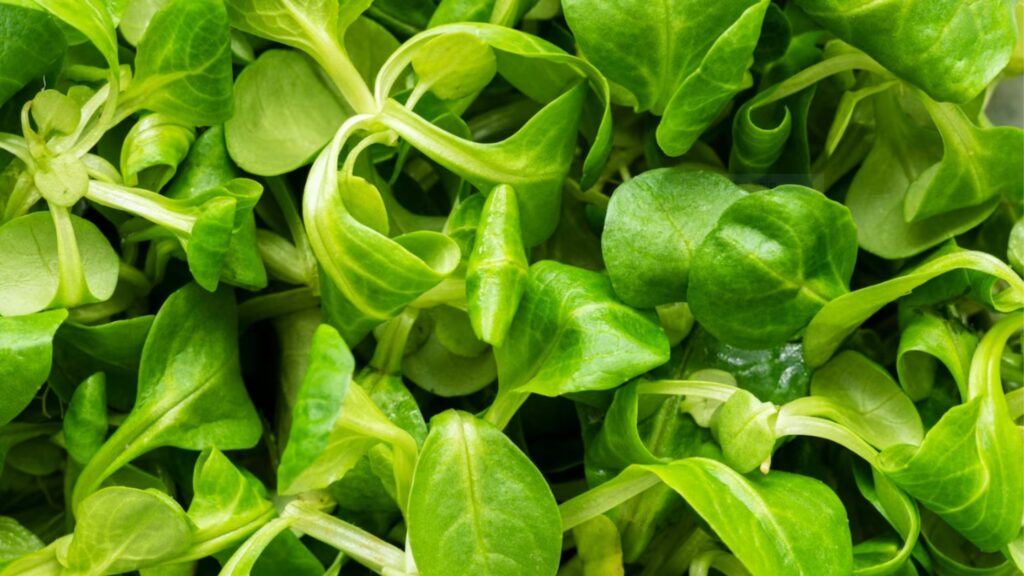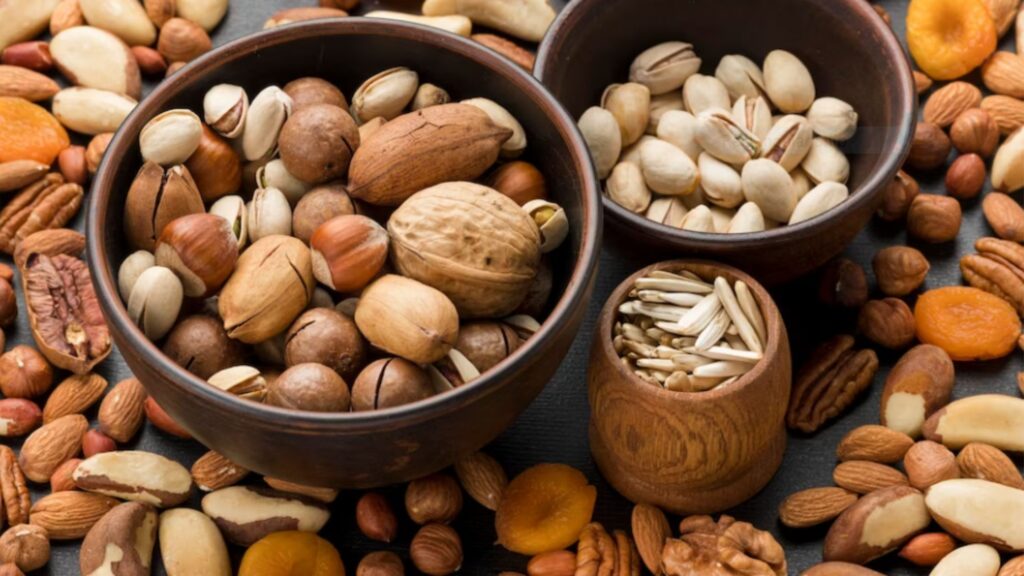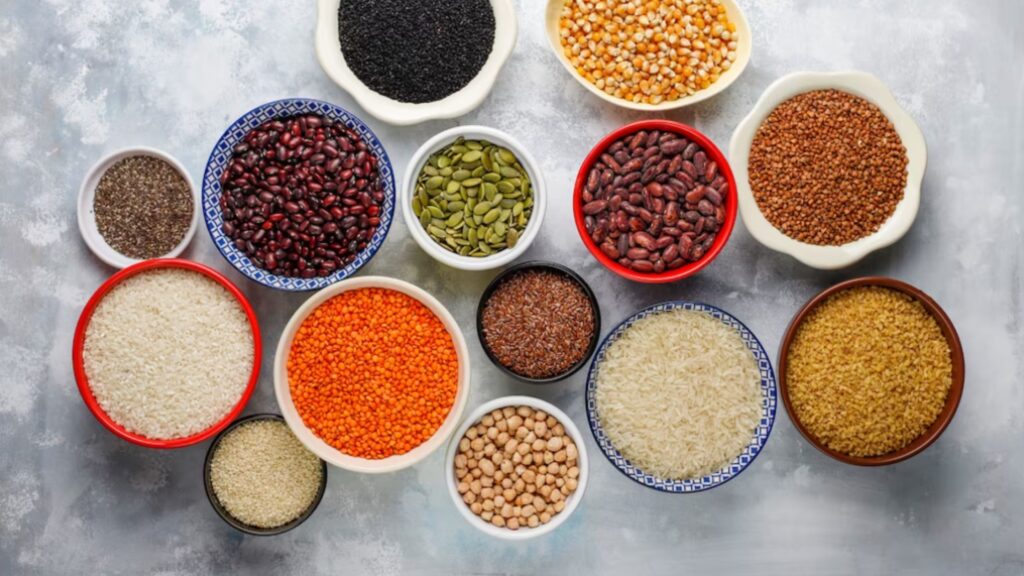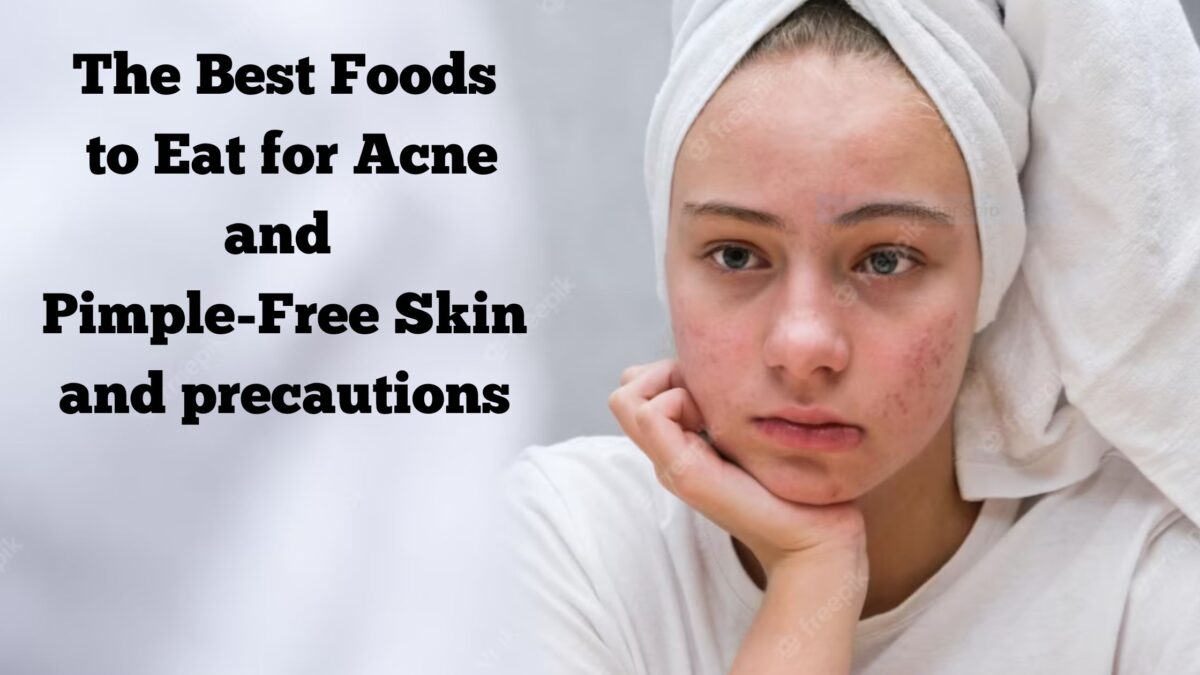Acne and pimples are common skin problems that can affect people of all ages. They are caused by a variety of factors, including hormonal changes, genetics, stress, and diet. While it may be tempting to turn to expensive skincare products to combat acne and pimples, a healthy diet can also play a significant role in keeping your skin clear and healthy. In this article, we’ll explore some of the best foods to eat for acne and pimple-free skin.
Fatty Fish:

Fatty fish such as salmon, mackerel, and sardines are rich in omega-3 fatty acids. These healthy fats have been shown to reduce inflammation in the body, which can help to prevent acne and pimples. Omega-3 fatty acids also help to regulate the production of sebum, which is the oil that can clog pores and lead to acne. In addition to their anti-inflammatory properties, fatty fish are also rich in vitamin D, which has been shown to help reduce acne.
Leafy Greens:

Leafy greens such as spinach, kale, and collard greens are excellent sources of vitamins and minerals that are essential for healthy skin. They are rich in vitamin A, which helps to regulate the production of sebum and prevent clogged pores. They are also high in vitamin C, which is an antioxidant that helps to protect the skin from damage caused by free radicals. Additionally, leafy greens are a good source of fiber, which can help to regulate digestion and prevent acne caused by digestive issues.
Nuts and Seeds:

Nuts and seeds are a great source of healthy fats, vitamins, and minerals that can help to prevent acne and promote healthy skin. Walnuts, for example, are rich in omega-3 fatty acids, while almonds are high in vitamin E, which helps to protect the skin from damage caused by free radicals. Sunflower seeds are a good source of selenium, which is an antioxidant that helps to prevent inflammation and promote healthy skin.
Probiotic Foods:

Probiotic foods such as yogurt, kefir, and sauerkraut are rich in beneficial bacteria that can help to regulate digestion and prevent acne caused by digestive issues. These foods contain live cultures of bacteria that help to restore the natural balance of bacteria in the gut, which can improve overall health and prevent acne. Probiotic foods are also a good source of vitamin D, which has been shown to help reduce acne.
Whole Grains:

Whole grains such as brown rice, quinoa, and whole wheat bread are rich in fiber, which can help to regulate digestion and prevent acne caused by digestive issues. They are also a good source of vitamins and minerals that are essential for healthy skin, such as vitamin B6, which helps to regulate hormones and prevent acne. Additionally, whole grains are low on the glycemic index, which means that they are less likely to cause spikes in blood sugar that can lead to acne.
Fruits and Vegetables:

Fruits and vegetables are rich in vitamins, minerals, and antioxidants that are essential for healthy skin. They are particularly high in vitamin C, which is an antioxidant that helps to protect the skin from damage caused by free radicals. Additionally, many fruits and vegetables are high in fiber, which can help to regulate digestion and prevent acne caused by digestive issues. Some good options include berries, citrus fruits, sweet potatoes, and carrots.
Green Tea:

Green tea is rich in antioxidants that can help to protect the skin from damage caused by free radicals. It also contains compounds called catechins, which have been shown to reduce inflammation in the body and prevent acne. Additionally, green tea is a good source of caffeine, which can help to improve blood flow and reduce puffiness in the skin.
Precautions for Maintaining Healthy Skin
Avoid Processed Foods:

Processed foods such as chips, cookies, and fast food contain high amounts of sugar, salt, and unhealthy fats that can lead to acne and pimples. Instead, choose whole, natural foods that are nutrient-dense.
Limit Dairy Intake:

Dairy products such as milk, cheese, and butter contain hormones that can trigger acne. If you notice that your acne worsens after consuming dairy products, try limiting your intake or switching to non-dairy alternatives.
Avoid High-Glycemic Index Foods:

High-glycemic index foods such as white bread, pasta, and sugary drinks can lead to an increase in insulin levels, which can trigger acne. Choose low-glycemic index foods such as whole grains, fruits, and vegetables to keep your blood sugar levels stable.
Manage Stress:

Stress can trigger acne and pimples. Practice stress-management techniques such as meditation, yoga, or deep breathing to reduce stress levels and promote healthy skin.
Cleanse Your Skin Regularly:

Cleaning your skin regularly helps in removing dirt, oil, and bacteria that can clog your pores and lead to acne. Use a gentle cleanser twice daily to keep your skin clean and healthy.
Conclusion
Eating a healthy diet is essential for maintaining healthy skin. Choose nutrient-dense foods that are rich in vitamins, minerals, and antioxidants to promote healthy skin. Avoid processed foods, high-glycemic index foods, and dairy products that can trigger acne. Practice stress-management techniques and cleanse your skin regularly to keep it healthy and glowing. With these precautions, you can achieve acne and pimple-free skin naturally.









